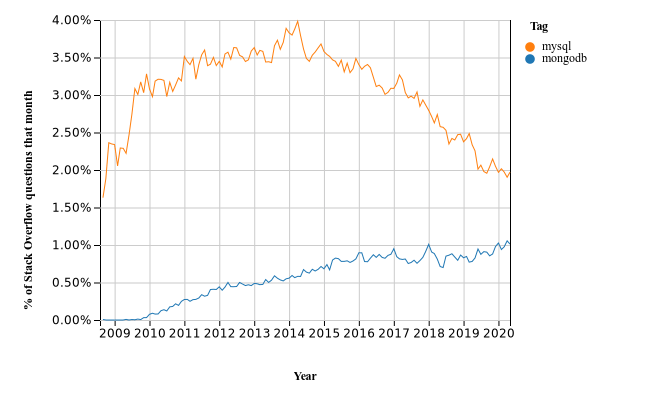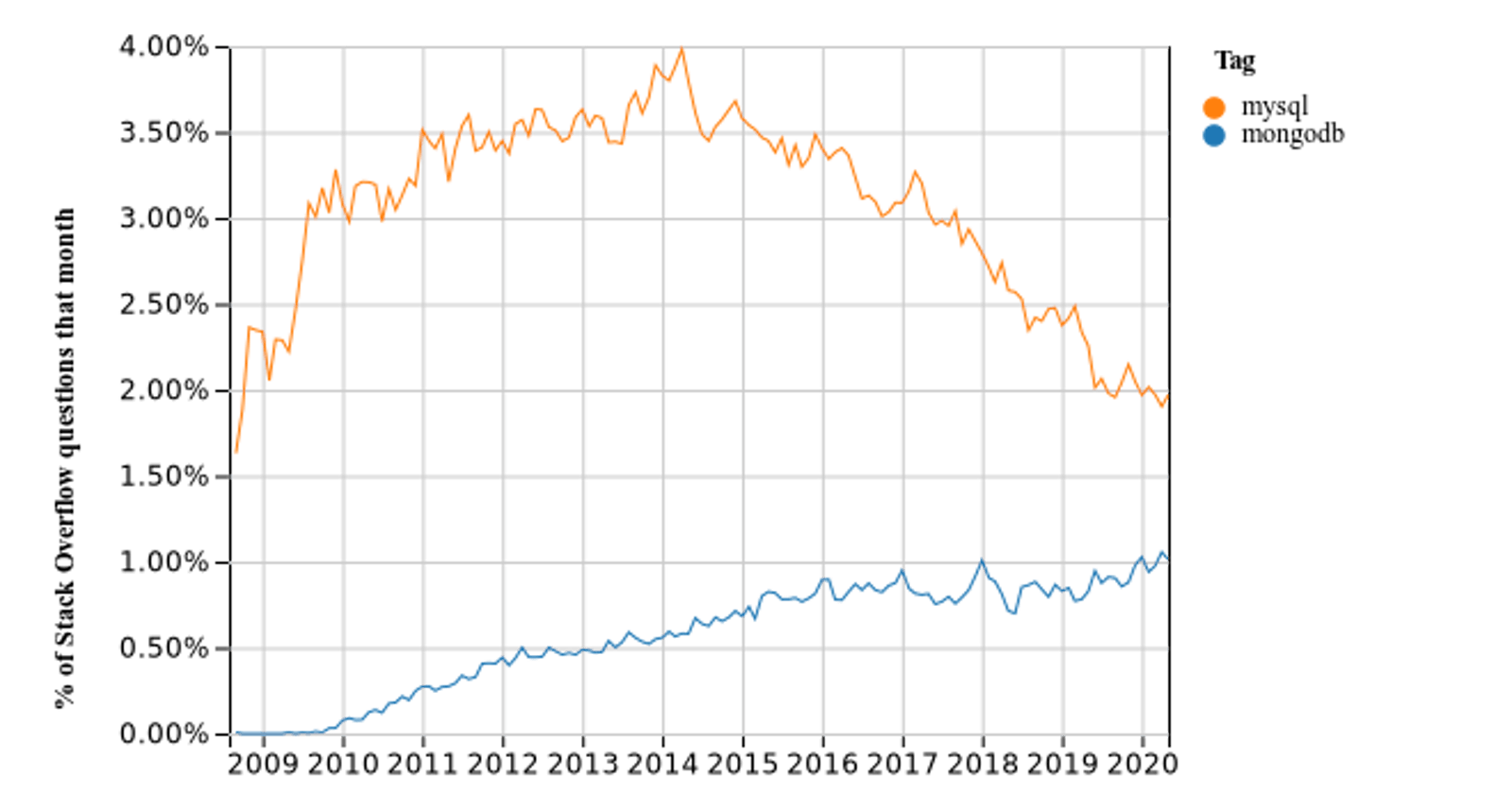MongoDB is an open-source document-oriented NoSQL database. NoSQL databases (aka "not only SQL") are non-tabular databases and store data differently than relational tables. NoSQL databases come in a variety of types based on their data model. NoSQL is used as an alternative to traditional relational databases. NoSQL databases are quite useful for working with large sets of distributed data.MongoDB is a database that came to light around the mid-2000s. This kind of Database Management System (DBMS) uses dynamic schemas that mean that you can create records without first defining the structure, such as the fields or the types and their values.
MYSQL is a popular and widely used Database Management System(DBMS). The name is taken from the combination of "My", the name of co-founder Michael Widenius's daughter, and "SQL", the abbreviation for Structured Query Language. It is a Relational Database Management System (RDMS) and works primarily on the relational database model. It makes database administration easier and more flexible. A relational database stores data in separate tables rather than putting all the data in one big storeroom. The database structures are organized into physical files optimized for speed. The logical model, with objects such as databases, tables, views, rows, and columns, offers a flexible programming environment. You set up rules governing the relationships between different data fields, such as one-to-one, one-to-many, unique, required, or optional, and “pointers” between different tables. The database enforces these rules, so that with a well-designed database, your application never sees inconsistent, duplicate, orphan, out-of-date, or missing data. The MySQL Database Server is very fast, reliable, scalable, and easy to use. MySQL Server can run comfortably on a desktop or laptop, alongside your other applications, web servers, and so on, requiring little or no attention. If you dedicate an entire machine to MySQL, you can adjust the settings to take advantage of all the memory, CPU power, and I/O capacity available. MySQL can also scale up to clusters of machines, networked together. The official way to pronounce “MySQL” is “My Ess Que Ell” (not “my sequel”), but we do not mind if you pronounce it as “my sequel” or in some other localized way.


